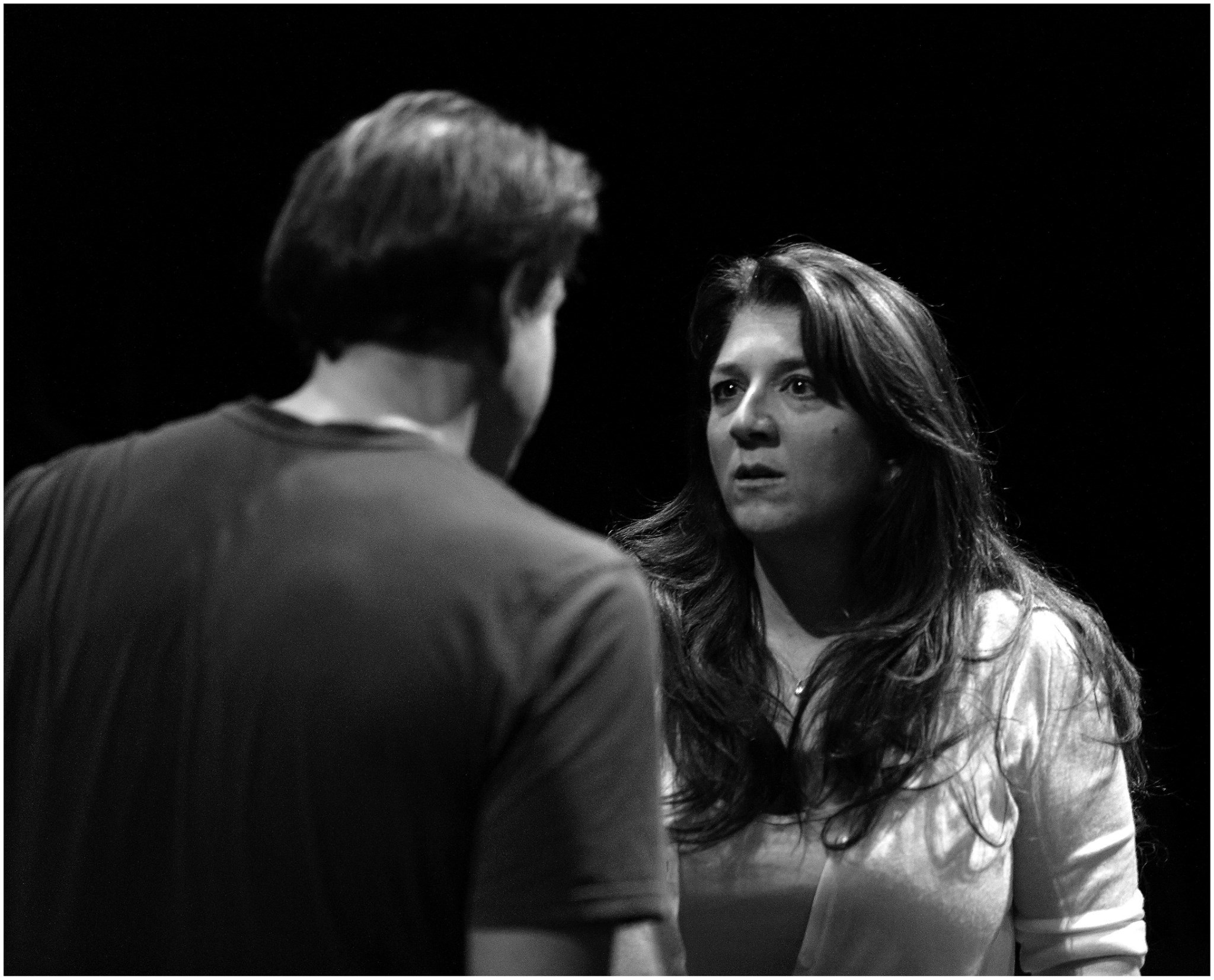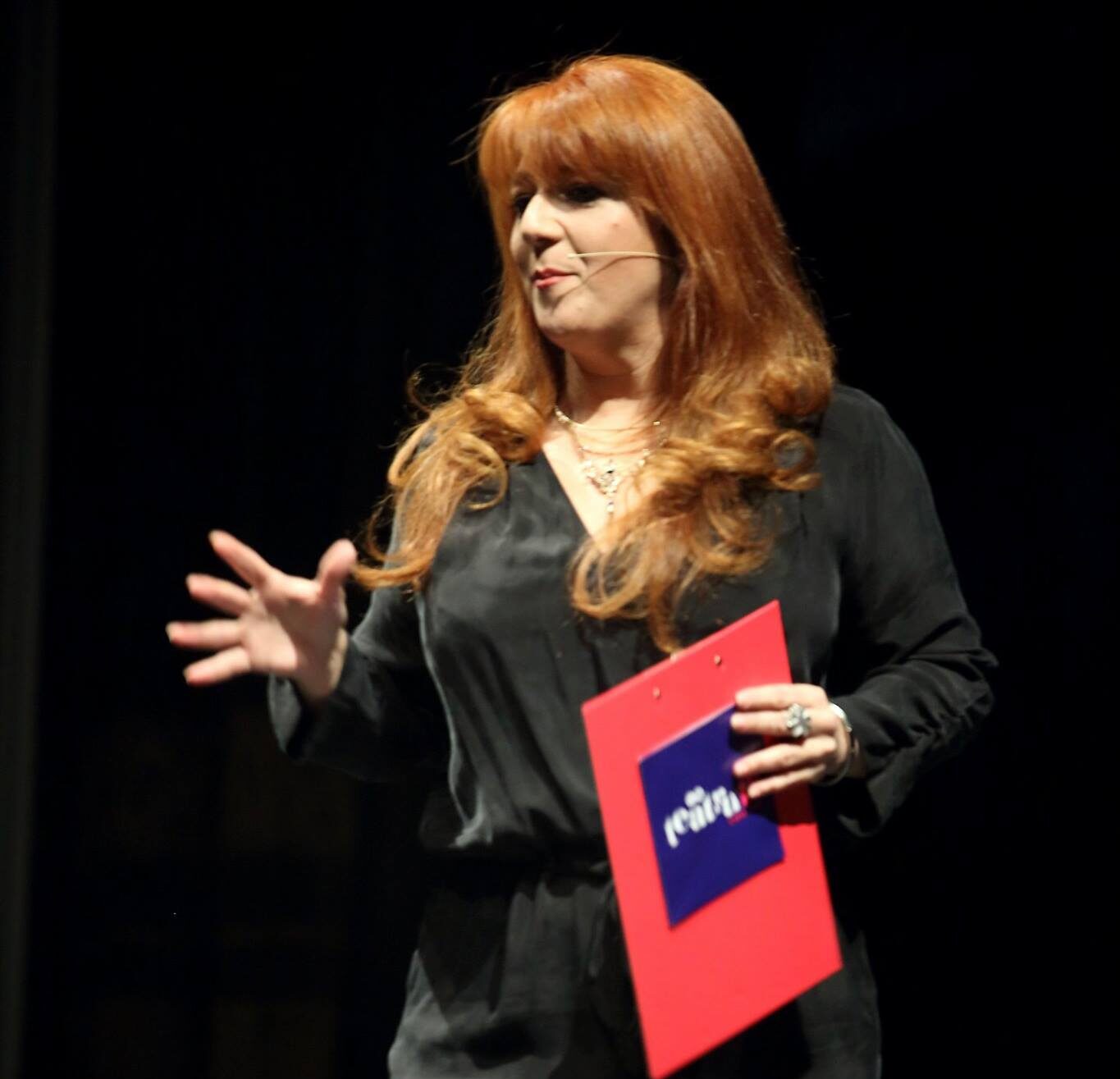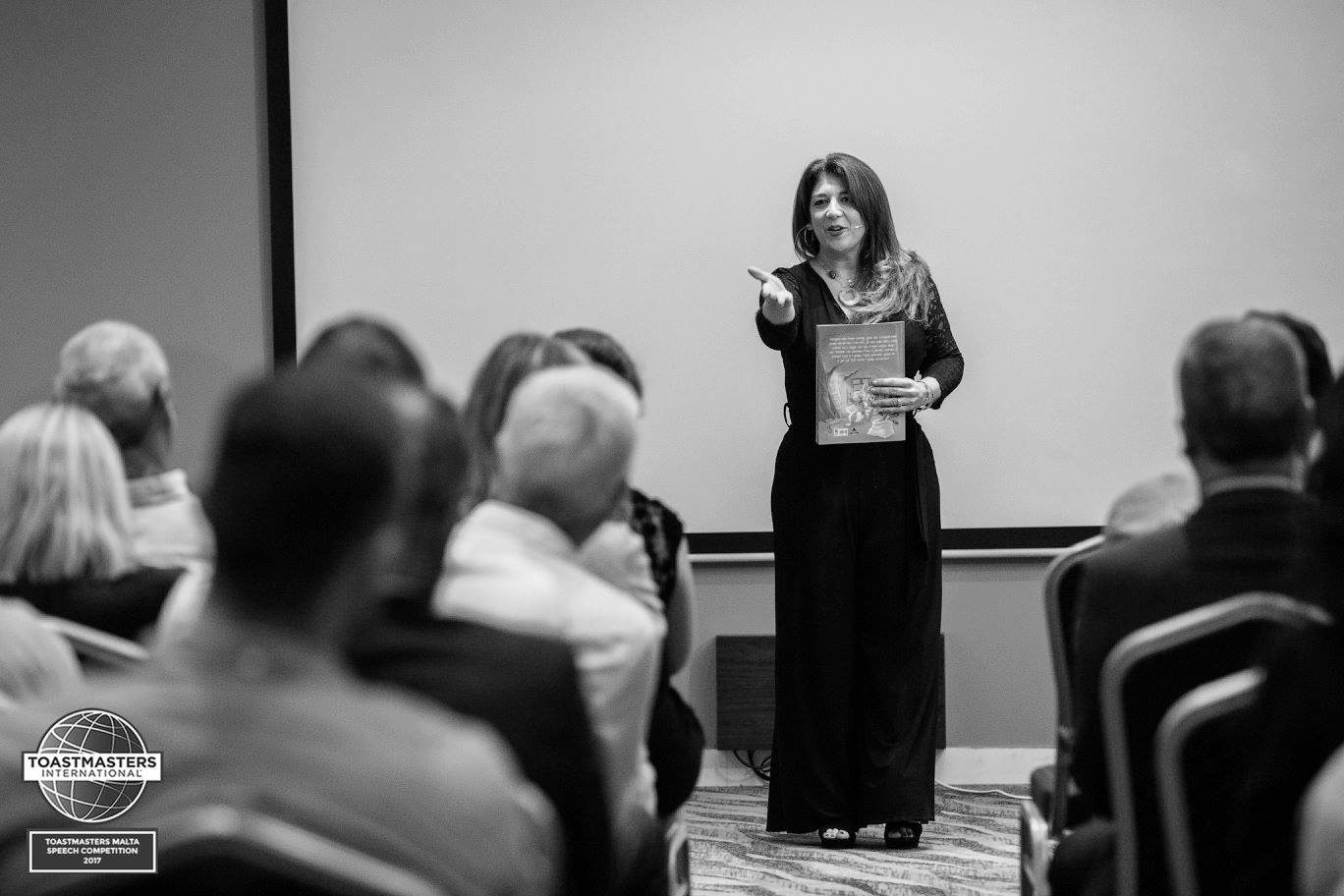
The multi-talented Pia Zammit uses all of her experience and skills to teach people the best of the best in the sphere of Public Speaking. She speaks about how her unique and diverse roles feed into each other and what she learnt from living abroad in the USA, as well as her interesting insights in non-verbal communication.
Hello Pia! Can you tell us a bit about yourself?
I am a wearer of many hats – and all of them are storytelling hats. I am an actress, an activist, a voice-over artist, a tutor, and a public speaker. I am the Director of Education of the English-Speaking Union Malta branch, and also a freelance Public Speaking and Debating Coach.
What is so important about effective communication and good public speaking?
Public Speaking is basically speaking in public – which covers so many scenarios. When we think about Public Speaking, we tend to picture politicians on a rostrum or large conference halls filled with people – however public speaking may be work presentations, interviews, sales pitches, or even one-on-one performance reviews.
The ability to communicate effectively is a great door opener. When you can express yourself with confidence, people trust you. When people trust you, they ‘buy’ what you are ‘selling’ – whether you a selling a story, an idea, a concept, or an actual product.
The great majority of employers say that the number one quality they look for in an employee is the ability to communicate effectively. And yet, we’re not taught this in schools – we’re not even guided through it. To be able to communicate effectively we need to be taught how and allowed to ask questions and to think critically. We need to put this on our curriculum, and we need to teach teachers how to teach it (now THERE’S an awkward sentence!). Debating too should be an essential part of our curriculum from primary age – a full ongoing permanent course and not an elective.
What was your first experience with public speaking, and what made you passionate about it?
Probably as a school kid. I was always one of the ‘assembly go-tos’. I liked being able to make people sit up and listen to me. It’s only as I started growing up that I realised why I did what I did and what it all meant. I like dissecting things to find out how they work, and as a teen, I started dissecting why sometimes I wasn’t as socially awkward as others. What made the instances different? Then along came acting, where you learn how to use your whole body to tell your story. Everything about it fascinates me. I like short-cuts, and I like understanding things. So I teach course participants to understand and be aware of their body language and how to be able to control it to their advantage.
How do you teach public speaking, presentation and debating skills since COVID started affecting our daily lives?
Online. Since COVID I haven’t given any face-to-face courses. Teaching via Zoom has been a whole new learning curve that has required more research, analysis, and learning. It’s fascinating though. I’ve had to learn how to have the same impact with my ‘story’ as if it were delivered face-to-face. It requires new skills.
I’ll explain myself. If for example, you were talking to a person one-on-one and explaining a concept to them, your body language, your voice, the words you use, etc, would be adapted to win that one person’s trust and understanding. Now imagine you have to sell that concept to a number of people at a conference. You need to take that one-on-one technique and adapt it to a large room and a large crowd, whilst still having the same impact as though it were one-on-one. Learning to adapt to online tutoring is kind of the same thing – I’ve had to rework, revise, re-understand how to use my voice, body language and words to have same impact as though I were coaching face-to-face.
How are people responding to your online Zoom sessions?
Feedback’s been very good, thank you. There is less demand now that it’s summer and that people are venturing back to ‘normality’ again.
Are there any positive sides to teaching online, or will you switch to physically meeting people as soon as you can?
There are positives, and they’re mainly all selfish. No driving, no parking, BEDSOCKS, great coffee, psychological comfort of my own house, dogs at my feet. There’s also another positive which doesn’t concern my own selfish needs, and that is that it’s made us all more conscious of our body language when on Skype or Zoom etc. conference calls. It’s become high on our list of new skills to have – which will stand us well in the future.
I think that I’ll have a mix of courses in the future. I’ll go back to physically meeting people when it’s safe to do so. It’s not the time yet – we still have to see what effect the influx of tourists will have, and we also have to have contingency plans for the new scholastic year. I’m currently planning for three possible different scenarios for the upcoming school year. I like plan Bs (Cs, Ds, and Es too if possible) – they calm me down as they give me more control.
Besides being a coach and teacher, you are also an actress. How does this affect the work you do as a coach? What role does communication play in theatre and acting?
It’s all storytelling. All of it. All my roles feed into each other. The work I learnt as an actress informed my training as a teacher-trainer, which informs my role as a tutor, which informs my style as a public speaker. Everything I do is about getting a message across effectively. There are acting techniques which overlap with public speaking techniques – and these are the ones I focus on in my courses. As an actor I suffer greatly from stage fright. I’ve had to learn how to understand and control it. I’ve had to learn how to be aware of my body language and control to ensure that I’m telling the story that I want to tell. I’ve had to learn how to use my voice effectively. All these techniques I break down into handy bite-sized tips and teach during my courses. Everyone loves a short cut…
You know a lot about body language and non-verbal communication. What’s the most interesting thing you teach about this?
Occupy your space. Don’t apologise for taking up space. Especially as a woman. All our lives we’ve been told to be thinner, be quieter, be less aggressive etc – it’s no wonder that we try to squeeze ourselves in tiny metaphorical spaces. Learn about open body language, throw your shoulders back and present a confident you – your social anxiety will thank you for it.
Of course this applies to men too – and I don’t mean this to be taken in an aggressive feminism agenda way. It’s a comment on society as a whole and the way that we are subliminally conditioned to behave without questioning.
Having studied Communications at the Montana State University in Bozeman, what is your main takeaway from learning and living abroad, especially regarding international communication?
First of all – everyone should live in another country for a while. Preferably another culture. And as much as we think we know about America – it IS another culture. I loved loved loved my time there, and it also made me hyper-aware about my Mediterranean style of communicating. Most American schools teach debate from a young age, and therefore many people are naturally more comfortable with speaking in public. Storytelling is ingrained.
So although I found my Maltese classmates more well read, my American classmates were much more fluent when giving class presentations or being interviewed on radio. The percentage of them who feared public speaking remained unchanged (74% of the world population list it as their number one fear), but they were more erudite when having to speak up.
It made me realise that our university courses are much more, how can I say this without sounding offensive, much more academic than in the USA – however, on the flip side, it also made me realise that here in Malta we need a lot more ‘practical skills’ training. A mixture of the two would be great.
What is your favourite thing about teaching in Malta?
I live here – so I don’t have to get on a plane to give a course. I don’t know whether this qualifies as a ‘favourite thing’; however, because communication skills are sadly lacking from our school curriculum, I love seeing what my guru Alan Marsh terms ‘the light bulb moment’ in students. That instance when they GET IT and their faces light up and they go ‘oooh yes!’. I know then that they’re on the right path to having great communication skills.
Improving your public speaking not only boosts your communication skills, it also transforms you into a more confident and well-spoken person. With her variety of talents and loads of experience, Pia Zammit teaches people from all ages and professions to become better communicators and storytellers. Get in touch with her on LinkedIn: https://mt.linkedin.com/in/pia-zammit-94155126






